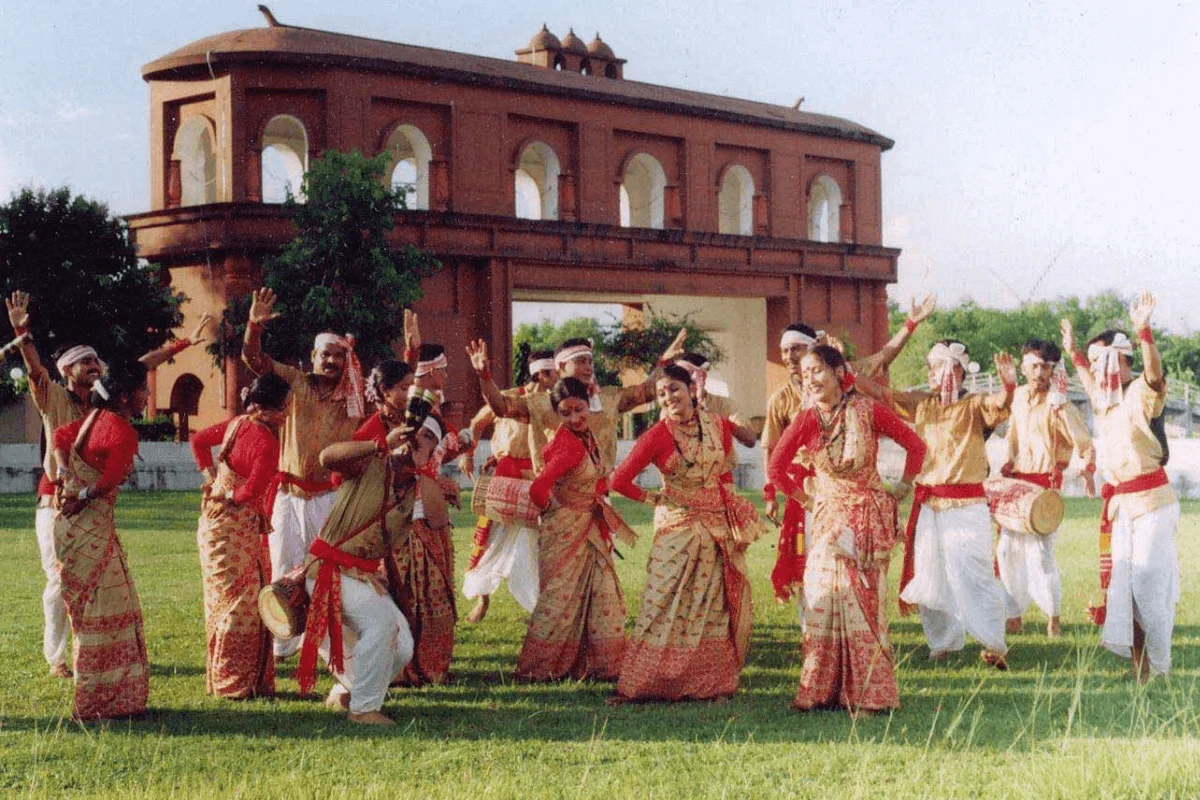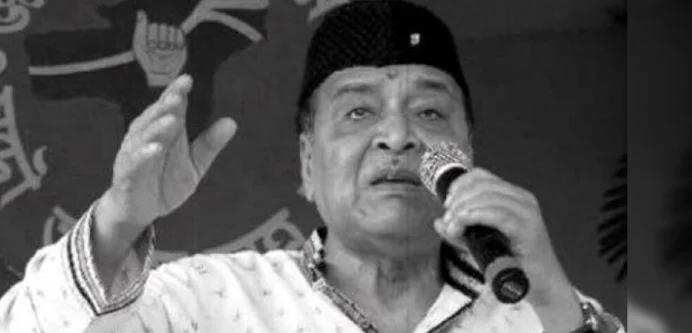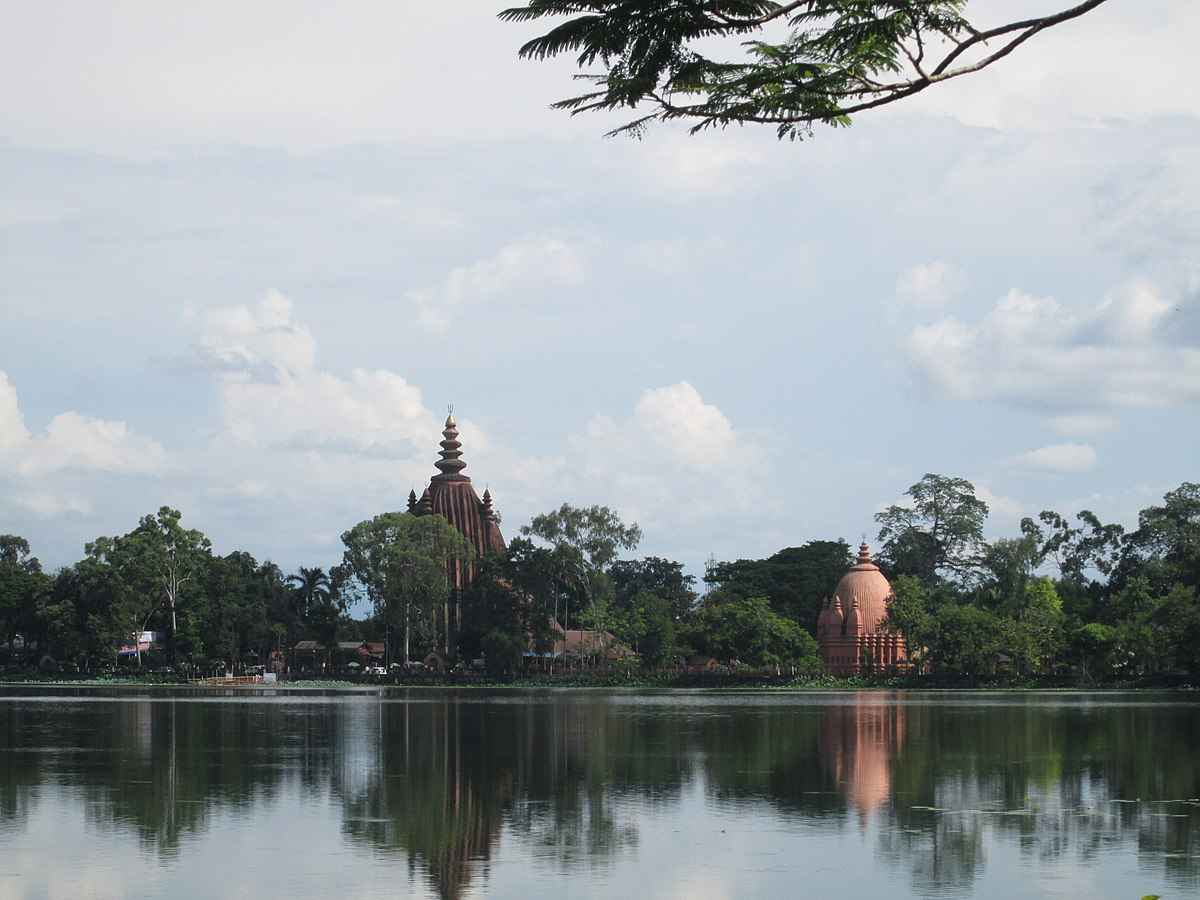Embarking on a journey through the cultural landscape of Assam unveils a tapestry rich in vibrant hues of music and dance. The traditional forms of folk music and dance in Assam not only reflect the cultural diversity of the region but also carry the heartbeat of its people. Among these, the Bihu dance stands out as a dynamic and celebratory expression of Assamese heritage.
The Rhythmic Resonance of Bihu Dance
Bihu: A Festival Dance
Celebration of Seasons
Bihu, the most celebrated festival in Assam, is synonymous with the Bihu dance. This dynamic and energetic dance form is an integral part of the Bihu festival, which marks the agricultural New Year. Bihu dance is performed with exuberance and is characterized by swift footwork, rhythmic hip movements, and vibrant traditional attire.
Distinct Bihu Dance Forms
Bihu in Three Phases
The Bihu dance comprises three distinctive forms: the ‘Bihuwaan,’ ‘Jeng Bihu,’ and ‘Gos Bihu.’ Each form is associated with different phases of the Bihu festival. The Bihuwaan, performed on the first day, embodies the joy of spring and the blossoming of nature. Jeng Bihu, the second-day dance, expresses the energy and enthusiasm of youth. Gos Bihu, performed on the third day, signifies the maturity and wisdom of the community.
Folk Music: The Melodic Essence of Assam
Borgeet: Spiritual Melodies
Devotional Hymns
Borgeet, a classical form of Assamese devotional music, holds a special place in the hearts of the people. These hymns, usually associated with the worship of Lord Krishna, are characterized by soulful melodies and profound lyrics. Borgeet reflects the spiritual and cultural ethos of Assam, transcending its role as mere music and becoming a devotional expression.
Husori: Festive Ensemble
Traditional Festival Music
Husori is a traditional ensemble music form performed during the harvest festival of Magh Bihu. Musicians visit homes, singing and playing traditional instruments like dhol, pepa, and taal. The rhythmic beats and lively tunes of Husori create an atmosphere of joy and festivity, marking the abundance of the harvest season.
FAQs
Q: What are the three forms of Bihu dance?
A: The three forms of Bihu dance are Bihuwaan, Jeng Bihu, and Gos Bihu, each associated with different phases of the Bihu festival.
Q: Which festival is Borgeet associated with?
A: Borgeet is associated with the worship of Lord Krishna and is often performed during devotional ceremonies and festivals.
Q: What instruments are used in Husori?
A: Traditional instruments like dhol, pepa, and taal are used in Husori, creating a festive ensemble during the Magh Bihu harvest festival.
Preserving the Cultural Heritage
In conclusion, the folk music and dance forms of Assam, especially the Bihu dance, are not just performances; they are living expressions of the region’s cultural vibrancy. As these traditions continue to evolve, they play a crucial role in preserving the cultural heritage of Assam. The rhythmic resonance of Bihu dance and the melodic essence of folk music weaves a captivating narrative that echoes through the ages, celebrating the spirit of Assamese identity.












